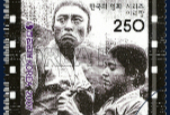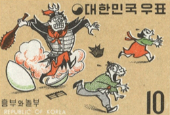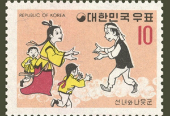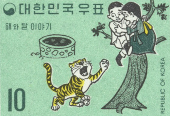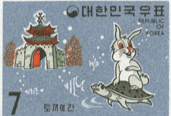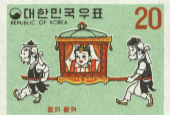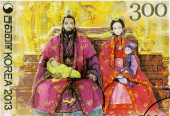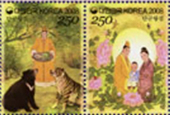-
 Korea.net's 24-hour YouTube channel
Korea.net's 24-hour YouTube channel- NEWS FOCUS
- ABOUT KOREA
- EVENTS
- RESOURCES
- GOVERNMENT
- ABOUT US
- 한국어
- English
- 日本語
- 中文
- العربية
- Español
- Français
- Deutsch
- Pусский
- Tiếng Việt
- Indonesian
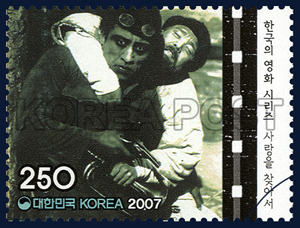
'In Pursuit of Love' (1928) is directed by Na Un-gyu. Na Un-gyu Productions (image courtesy of the Korea Post)
Korea Post recently selected a few of the most representative Korean movies from the past, starting from the birth of Korean cinema during the nation's difficult early 20th century. It then represented these movies on some of its postage stamps.
The first edition of these special stamps was issued in 2007, with one scene from each of its four representative movies from the 1920s and 1930s.
The first stamp in the series featured the film "Arirang" (1926), a movie named after the famous folksong that is the "theme song" for every modern Korean.
The second stamp in the series features the movie "In Pursuit of Love," released in 1928 by Na Un-gyu productions.
"In Pursuit of Love" is another representative black and white silent film by Na Un-gyu, who is both director and takes the leading role.
The film is set in a time when sovereignty is lost and masses of people flee the land where Japan rules with an iron fist, preferring to live in Manchuria.
Cocosu is an elderly man who served in the late Joseon army as a trumpeter. He lost his land due to unjust Japanese rule and chose to move to Manchuria with his kinsmen, including Dongmin, played by Na Un-gyu.
The plot thickens as horse-borne bandits attack the settlement, refugees flee back across the Dumangang River. Their plight deepens as Japanese soldiers mistakenly take them as independence fighters and start attacking the doomed people.
Dying, Cocosu continues to blow his trumpet until his very last breath in an effort to keep his band of people together. Dongmin takes the trumpet from his hands to continue Cocosu's work, yet he, too, is unable to escape death.
First released as "Crossing the Duman," the film's screening was banned due to severe Japanese censorship at the time. It was eventually rereleased short of a few scenes under a different title.
By Paik Hyun
Korea.net Staff Writer
cathy@korea.kr
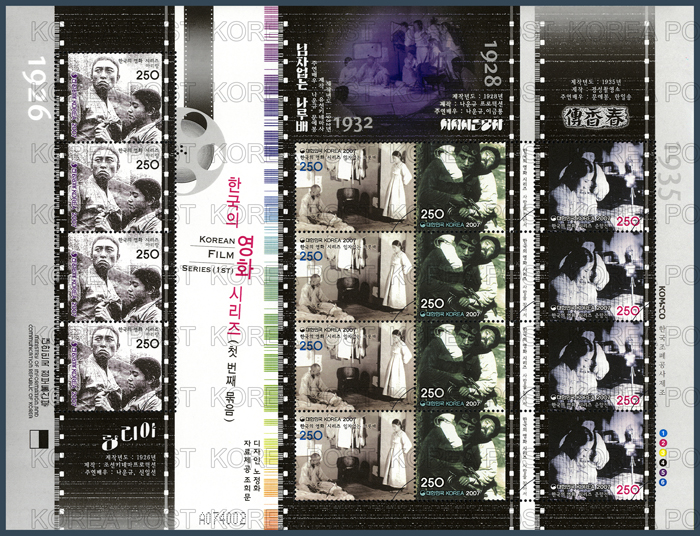
Korean Film Series 1 (image courtesy of the Korea Post)
Related Contents
Most popular
- First hearing-impaired K-pop act hopes for 'barrier-free world'
- Event 'K-Beauty Hang Out' draws hundreds in Philippines
- 'Mad Max' director impressed by 'cinema-literate' Korean viewers
- Ceremony in Seoul inducts 2,641 content creators of Korean culture
- Romanian presidential couple visits national cemetery









